- Joined
- Jul 24, 2008
- Messages
- 33,627
- Points
- 0
[TABLE="width: 100%"]
<TBODY>[TR]
[TD="class: msgtxt"]http://yawningbread.wordpress.com/2011/08/25/i-endorse-tan-jee-say/
[h=3]I endorse Tan Jee Say[/h]<SMALL class=entry-meta>Published <ABBR class=published title=2011-08-25T18:49:42+0000>25 August 2011</ABBR> personal perspective , politics and government Leave a Comment
</SMALL><!-- .entry-meta -->
<!-- .entry-head -->On Saturday, I will be voting for Tan Jee Say. It’s a decision I made about a week ago, and in the days since, it has only grown more comfortable. I am now sure enough of that decision to write about it.
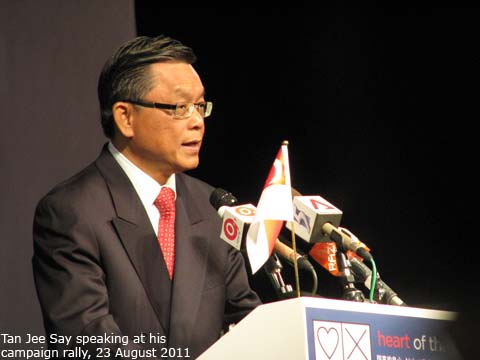
I know that, along with the two other candidates who have not received the tacit endorsement of the government, Tan Jee Say’s chances are not particularly bright, but I do not want to desert my own values. Neither is it true that Jee Say’s values are identical with mine; but of all the candidates, his seem to come closest.
In parallel with the candidates’ campaigns, there has been a discussion about what exactly the president can or cannot do and what the office is about. I am not at all starry-eyed about the scope of the job. His powers are limited, and if the government does not fancy the eventual winner of the election, there is a real possibility that more constitutional amendments will be put to Parliament amputating his powers even further. So be it. If the proverbial emperor (in this case the government headed by Lee Hsien Loong) with next to no clothes wants to take off his knickers too, and bare his utterly self-serving approach to politics, let the world see his nakedness.
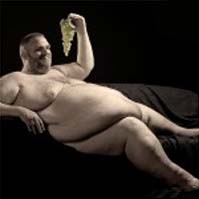 I think it will be a stretch to expect the president to be, single-handedly, an effective check and balance on the government of the day. Having a substantial and robust opposition in Parliament is the better way to achieve that. But as I said at the Maruah talk last Saturday, to build a properly functioning democracy, every little brick counts. Having an independent-minded person in the Istana is one more brick, and that is why the vote this August 27 is important.
I think it will be a stretch to expect the president to be, single-handedly, an effective check and balance on the government of the day. Having a substantial and robust opposition in Parliament is the better way to achieve that. But as I said at the Maruah talk last Saturday, to build a properly functioning democracy, every little brick counts. Having an independent-minded person in the Istana is one more brick, and that is why the vote this August 27 is important.
Tony Tan said in his speech at the rally he held at Boat Quay on 24 August 2011, “The president is not a super-MP.” I know he is not, but I would much rather have one who will try creatively to lead a conversation both with the public and with the government privately, than one who will just shrug, give up and do nothing, with the excuse that it is outside the scope of the job. Which, by the way, sounds awfully like what we hear from unhelpful bureaucrats who have no intention of dealing with the problems we draw their attention to.
As it stands, the constitution gives the president discretionary powers in five key areas:
1. Unlocking past reserves;
2. Prolonging detention without trial beyond an initial three months;
3. Key public service appointments including judicial ones;
4. Application of the Maintenance of Religious Harmony Act;
5. Unblocking corruption investigations of key office-holders when the prime minister has blocked them.
As I have argued in several recent articles here, knowing what underlying convictions a man holds is important for knowing how he is likely to apply that discretion. Will he be tight-fisted about reserves? Will he, when asked to release reserves, try to persuade the government that the monies so released be applied to certain purposes that will advance greater social equity or longer-term good? Will he be, by nature, skeptical of nominees presented to him for appointment to key public service positions, or will he be ever so trusting of the government in taking on board more and more people with a similar tendency to groupthink?
The convictions articulated by Tan Jee Say sit well with me. He has spoken about how he thinks more should be done for social equity, about how the measure of progress must be anchored to the improvements in the lives of the weaker members of society, not that of the privileged elite. Reserves should serve this aim, he has said. He has expressed a distrust of the Internal Security Act; declared his opposition to the death penalty; and asserted his intention to enquire closely about nominees before signing off on their appointments to senior positions. I find these foundational principles reassuring, and in the consistent manner that he has articulated them, I believe he holds them dear to his heart.
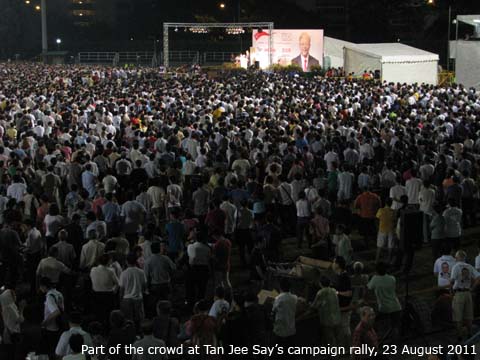
There are arguments that, just as the other candidates have had a history of affiliation with the People’s Action Party (PAP), Jee Say was with the Singapore Democratic Party (SDP), and is thus no more “independent” than the rest. This argument is flawed in one important way, for it appears to be based on a mirage — that of “independence” as an absolute quality. It is never so, it is always relative; and in the Singapore context, when the PAP is virtually certain to be the party of government for the next five years, roughly concurrent with the bulk of the next presidential term, we need primarily to think in terms of independence from the PAP.
In any case, as Jee Say repeatedly said, his affiliation with the SDP lasted no more then three-and-a-half months, while the other three candidates had been active members of the PAP for decades.
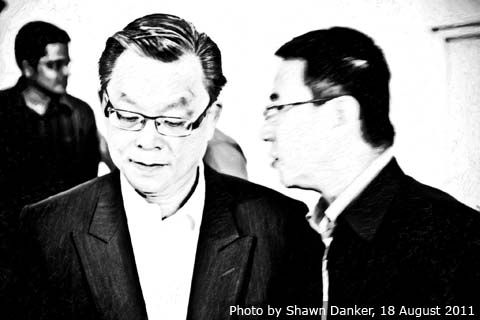
I first encountered Jee Say at the SDP’s press conference in April this year, wherein the party was introducing him as a candidate for the May general election. I’ll tell you this: I was squinty-eyed about him. If you look up media archives, you will see that at that press conference, I asked him two deeply searching questions, both of which belied my deep scepticism.
The first was whether he truly subscribed to the SDP’s long and proud history of standing up for human rights and civil liberties. He said he did, but without elaborating much, it left me only half-convinced. (He would later prove me right to be only half-convinced when he distanced himself from the SDP’s previous history of protests, by saying that Chee Soon Juan “had learnt his lesson”!)
The second question I asked at the press conference was why he seemed to appear out of nowhere, never having participated in the SDP’s previous campaigns, and now wanting to stand for election under the party’s ticket. This was the tougher question, but he gave me the better answer, for there was an unexpected honesty about it. He spoke about how in the Singapore context, it is never easy to express one’s political views in public, let alone take sides overtly with an opposition party. The climate of fear and the weight of depoliticisation sit heavily on us all. He spoke about how he had to struggle with his own anxieties and how in the end he had to appeal to his long-time friend, Ang Yong Guan, to walk the path with him before he could find enough strength to do so. (Ang too, as you might recall, stood on the SDP’s ticket for the general election.)
Between these two answers, plus subsequent conversations with him, I think I know quite well now what makes him tick. Indeed, on one score, I was right from the beginning — he’s not a very good fit with the SDP. He doesn’t seem to totally agree with the party on issues of tactics at least, if not other things. He’s not a Trojan Horse for the SDP. So, to the question, ‘Is he independent?’, to me the answer is: Yes, he’s independent enough.
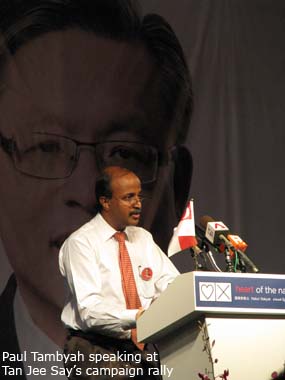 But on the other score, from the way he has been very consistent about it, I was more wrong than right. He may be a johnny-come-lately, but he really does hold certain deep convictions: about social equity, about the whole purpose of economic development, about the moral responsibility to lead a people in a certain direction that is more constructive than self-destructive, about the importance of respect for human rights and human life. When he speaks about conscience, he means it.
But on the other score, from the way he has been very consistent about it, I was more wrong than right. He may be a johnny-come-lately, but he really does hold certain deep convictions: about social equity, about the whole purpose of economic development, about the moral responsibility to lead a people in a certain direction that is more constructive than self-destructive, about the importance of respect for human rights and human life. When he speaks about conscience, he means it.
* * * * *
Now I come to the gay issue. No person who is not a member of a minority can truly understand why minority identification is such a crucial factor in political decisions. Just as we do not expect a Malay voter to give his vote to any politician who neglects, or worse, demeans, his ethnic identity or espouses discrimination against Malays — or vice versa, the Chinese voter in Malaysia – as a gay person, it is a matter of non-negotiable principle that I will never give my vote to anyone who neglects, demeans or discriminates against me.
The more ardent of my gay brethren will say that Tan Jee Say has not been explicit enough; at no time does he speak of repealing Section 377A. To that, my reply is this:
Firstly, this election is not for Parliament and questions of lawmaking or repeal are ultimately legislative questions; they are not exactly pertinent to the presidency. Secondly, non-discrimination established as substantive principle may be more important, because discrimination against gay, lesbian and transgendered persons goes well beyond Section 377A. Thirdly, it’s better to have a politically smart candidate who knows how to communicate in a way that doesn’t make too many enemies, than have a politically obtuse guy who says exactly what you want to hear at great cost to his own electoral chances.
As many readers will know, when I posed the question to him at the forum organised by The Online Citizen on 18 August 2011, Jee Say said unequivocally that “No discrimination” was among his core beliefs. But more interestingly, among the questions scripted for him at his rally on 23 August, was that on LGBT. He made an effort to include it so that he could repeat his point, even if briefly. See this video below, at 10 min 48 secs.
* * * * *
Some people, including a senior member of an opposition party, have expressed surprise that I intend to vote for Tan Jee Say, and that I have not considered Tan Cheng Bock seriously.
Actually, the more I know about Tan Cheng Bock, the less I want to vote for him. Pealing away his gentle, avuncular demeanour, I find a troubling hole I cannot fathom. I cannot find an answer to a fundamental question: What does the man stand for?
I have no doubt he has compassion for the common people; I have no doubt that he is more in touch with the average Joe and Jill than the other leading PAP-associated candidate. This easy familiarity probably made him a fine constituency MP. In this presidential campaign however, there is an uncomfortable disconnection among the various ideas he has expressed, as if there is no overarching political philosophy.
Worse than that, in certain specifics, he has said things that I cannot agree with. To a question about the death penalty, he defended it and even gave me the impression he’d like to see more of it. To a question about detention without trial, he appears to have a mental block against revisiting past cases or reexamining the whole issue from a fairness and human rights point of view.
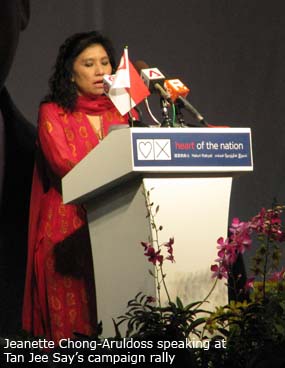 At other points in the campaign, he lost me when he played up football and the idea of moving the prime minister’s office out of the Istana compound. These are insubstantial issues, almost gimmicky.
At other points in the campaign, he lost me when he played up football and the idea of moving the prime minister’s office out of the Istana compound. These are insubstantial issues, almost gimmicky.
What’s the common thread? I asked myself repeatedly, but could never quite find an answer.
Instead, what I found telling was his repeated reference to a “rogue government” and about “doing wrong”. At no time did he elaborate on what he meant by that, but repetition itself seemed to indicate that he did have specific issues in mind. As I have said to a number of friends, I got the sense that he has certain very specific beefs with the government, which might have been the chief motivation for him pursuing this campaign. But why is he so guarded about the details?
Or is he aware that the details are either petty or personal, that public examination of them might be vote-losers?
I am acutely aware that in an increasingly complex political landscape, not everybody who is frustrated with the present PAP government is critical of it from the liberal left perspective. Increasingly, there will be critics from the conservative right. The abortive takeover of Aware was one event, for example, in which the conservative right revealed themselves as a group that was unhappy with government policy — in that instance, sexuality education in schools. Prior to that, we had the pulpit-led groups that objected loudly when in 2003, the government said the civil service would not discriminate against gay employees.
I’m not at all suggesting that Tan Cheng Bock shares the views of those groups — as far as I know, he has said nothing about them — but the purpose of my mentioning these recent events is to underline my point that we should not assume that anyone critical of the present government is doing so from the angle of the liberal left.
And this possibility made my inability to read Tan Cheng Bock’s overall political philosophy all the more troubling. Where does he stand? I kept asking myself. What does he believe in?
Even Straits Times reporters have noted that Cheng Bock is hardest to read. Reporter Elgin Toh, for example, has written that of all the candidates, his position has shifted the most in the course of the campaign. He started off prior to Nomination Day declaring that he would not be a caged president:
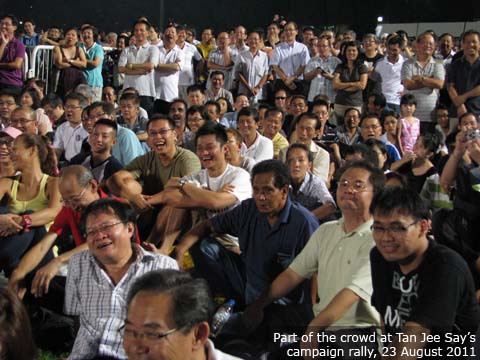
Some friends have argued that Tan Cheng Bock has the best chance of defeating Tony Tan. This is because he can draw votes from both the PAP-sympathetic side and the opposition-sympathetic side. Maybe so, maybe not. It’s hard to estimate this because we’ve never had an election like this before. We have no useful historical data on voting behaviour to draw on.
This argument in favour of Tan Cheng Bock presumes that one should do everything possible to block Tony Tan’s ascent to the presidency. If a donkey looks like he has the best chance, vote for the donkey. I’m not saying Tan Cheng Bock is a donkey, but I’m sure you get the point.
My position is that we know so little about what Tan Cheng Bock intends to do with the office, it might even be a bigger gamble than voting for Tony Tan. More likely than not, he will be almost as passive — which is why political analysts think the PAP government might, at a pinch, be able to live with him.
* * * * *
This is not to say that voting tactically never crossed my mind. To an extent, I am voting tactically too because I personally like Tan Kin Lian, but at this stage I think his chances are poor. I have no doubt about his personal integrity and where his heart lies. However, at several points in the campaign, he gave me the impression that he was out of his depth in areas outside of finance; he had not thought through other issues enough. He might make a good candidate at the next presidential election, but alas, he appeared rather less than ready for this one.

So I am endorsing Tan Jee Say. I am voting for him because as far as I can see, he is forthright about his views and holds values that are in rough alignment with mine. These are values anyone with a concern for human rights and human dignity would be comfortable with. He has made an effort to acknowledge the concerns of the gay, lesbian and transgender communities. And not least, because I judge that his convictions are sincere and strong, he has the will to stand by them and, of all the candidates, the fortitude to withstand the bullying that will surely come.
[/TD]
[/TR]
[TR]
[TD="class: msgVFM, colspan: 2, align: center"]View Full Message[/TD]
[/TR]
</TBODY>[/TABLE]
<TBODY>[TR]
[TD="class: msgtxt"]http://yawningbread.wordpress.com/2011/08/25/i-endorse-tan-jee-say/
[h=3]I endorse Tan Jee Say[/h]<SMALL class=entry-meta>Published <ABBR class=published title=2011-08-25T18:49:42+0000>25 August 2011</ABBR> personal perspective , politics and government Leave a Comment
</SMALL><!-- .entry-meta -->
<!-- .entry-head -->On Saturday, I will be voting for Tan Jee Say. It’s a decision I made about a week ago, and in the days since, it has only grown more comfortable. I am now sure enough of that decision to write about it.

I know that, along with the two other candidates who have not received the tacit endorsement of the government, Tan Jee Say’s chances are not particularly bright, but I do not want to desert my own values. Neither is it true that Jee Say’s values are identical with mine; but of all the candidates, his seem to come closest.
In parallel with the candidates’ campaigns, there has been a discussion about what exactly the president can or cannot do and what the office is about. I am not at all starry-eyed about the scope of the job. His powers are limited, and if the government does not fancy the eventual winner of the election, there is a real possibility that more constitutional amendments will be put to Parliament amputating his powers even further. So be it. If the proverbial emperor (in this case the government headed by Lee Hsien Loong) with next to no clothes wants to take off his knickers too, and bare his utterly self-serving approach to politics, let the world see his nakedness.
 I think it will be a stretch to expect the president to be, single-handedly, an effective check and balance on the government of the day. Having a substantial and robust opposition in Parliament is the better way to achieve that. But as I said at the Maruah talk last Saturday, to build a properly functioning democracy, every little brick counts. Having an independent-minded person in the Istana is one more brick, and that is why the vote this August 27 is important.
I think it will be a stretch to expect the president to be, single-handedly, an effective check and balance on the government of the day. Having a substantial and robust opposition in Parliament is the better way to achieve that. But as I said at the Maruah talk last Saturday, to build a properly functioning democracy, every little brick counts. Having an independent-minded person in the Istana is one more brick, and that is why the vote this August 27 is important.Tony Tan said in his speech at the rally he held at Boat Quay on 24 August 2011, “The president is not a super-MP.” I know he is not, but I would much rather have one who will try creatively to lead a conversation both with the public and with the government privately, than one who will just shrug, give up and do nothing, with the excuse that it is outside the scope of the job. Which, by the way, sounds awfully like what we hear from unhelpful bureaucrats who have no intention of dealing with the problems we draw their attention to.
As it stands, the constitution gives the president discretionary powers in five key areas:
1. Unlocking past reserves;
2. Prolonging detention without trial beyond an initial three months;
3. Key public service appointments including judicial ones;
4. Application of the Maintenance of Religious Harmony Act;
5. Unblocking corruption investigations of key office-holders when the prime minister has blocked them.
As I have argued in several recent articles here, knowing what underlying convictions a man holds is important for knowing how he is likely to apply that discretion. Will he be tight-fisted about reserves? Will he, when asked to release reserves, try to persuade the government that the monies so released be applied to certain purposes that will advance greater social equity or longer-term good? Will he be, by nature, skeptical of nominees presented to him for appointment to key public service positions, or will he be ever so trusting of the government in taking on board more and more people with a similar tendency to groupthink?
The convictions articulated by Tan Jee Say sit well with me. He has spoken about how he thinks more should be done for social equity, about how the measure of progress must be anchored to the improvements in the lives of the weaker members of society, not that of the privileged elite. Reserves should serve this aim, he has said. He has expressed a distrust of the Internal Security Act; declared his opposition to the death penalty; and asserted his intention to enquire closely about nominees before signing off on their appointments to senior positions. I find these foundational principles reassuring, and in the consistent manner that he has articulated them, I believe he holds them dear to his heart.

There are arguments that, just as the other candidates have had a history of affiliation with the People’s Action Party (PAP), Jee Say was with the Singapore Democratic Party (SDP), and is thus no more “independent” than the rest. This argument is flawed in one important way, for it appears to be based on a mirage — that of “independence” as an absolute quality. It is never so, it is always relative; and in the Singapore context, when the PAP is virtually certain to be the party of government for the next five years, roughly concurrent with the bulk of the next presidential term, we need primarily to think in terms of independence from the PAP.
In any case, as Jee Say repeatedly said, his affiliation with the SDP lasted no more then three-and-a-half months, while the other three candidates had been active members of the PAP for decades.

I first encountered Jee Say at the SDP’s press conference in April this year, wherein the party was introducing him as a candidate for the May general election. I’ll tell you this: I was squinty-eyed about him. If you look up media archives, you will see that at that press conference, I asked him two deeply searching questions, both of which belied my deep scepticism.
The first was whether he truly subscribed to the SDP’s long and proud history of standing up for human rights and civil liberties. He said he did, but without elaborating much, it left me only half-convinced. (He would later prove me right to be only half-convinced when he distanced himself from the SDP’s previous history of protests, by saying that Chee Soon Juan “had learnt his lesson”!)
The second question I asked at the press conference was why he seemed to appear out of nowhere, never having participated in the SDP’s previous campaigns, and now wanting to stand for election under the party’s ticket. This was the tougher question, but he gave me the better answer, for there was an unexpected honesty about it. He spoke about how in the Singapore context, it is never easy to express one’s political views in public, let alone take sides overtly with an opposition party. The climate of fear and the weight of depoliticisation sit heavily on us all. He spoke about how he had to struggle with his own anxieties and how in the end he had to appeal to his long-time friend, Ang Yong Guan, to walk the path with him before he could find enough strength to do so. (Ang too, as you might recall, stood on the SDP’s ticket for the general election.)
Between these two answers, plus subsequent conversations with him, I think I know quite well now what makes him tick. Indeed, on one score, I was right from the beginning — he’s not a very good fit with the SDP. He doesn’t seem to totally agree with the party on issues of tactics at least, if not other things. He’s not a Trojan Horse for the SDP. So, to the question, ‘Is he independent?’, to me the answer is: Yes, he’s independent enough.
 But on the other score, from the way he has been very consistent about it, I was more wrong than right. He may be a johnny-come-lately, but he really does hold certain deep convictions: about social equity, about the whole purpose of economic development, about the moral responsibility to lead a people in a certain direction that is more constructive than self-destructive, about the importance of respect for human rights and human life. When he speaks about conscience, he means it.
But on the other score, from the way he has been very consistent about it, I was more wrong than right. He may be a johnny-come-lately, but he really does hold certain deep convictions: about social equity, about the whole purpose of economic development, about the moral responsibility to lead a people in a certain direction that is more constructive than self-destructive, about the importance of respect for human rights and human life. When he speaks about conscience, he means it.* * * * *
Now I come to the gay issue. No person who is not a member of a minority can truly understand why minority identification is such a crucial factor in political decisions. Just as we do not expect a Malay voter to give his vote to any politician who neglects, or worse, demeans, his ethnic identity or espouses discrimination against Malays — or vice versa, the Chinese voter in Malaysia – as a gay person, it is a matter of non-negotiable principle that I will never give my vote to anyone who neglects, demeans or discriminates against me.
The more ardent of my gay brethren will say that Tan Jee Say has not been explicit enough; at no time does he speak of repealing Section 377A. To that, my reply is this:
Firstly, this election is not for Parliament and questions of lawmaking or repeal are ultimately legislative questions; they are not exactly pertinent to the presidency. Secondly, non-discrimination established as substantive principle may be more important, because discrimination against gay, lesbian and transgendered persons goes well beyond Section 377A. Thirdly, it’s better to have a politically smart candidate who knows how to communicate in a way that doesn’t make too many enemies, than have a politically obtuse guy who says exactly what you want to hear at great cost to his own electoral chances.
As many readers will know, when I posed the question to him at the forum organised by The Online Citizen on 18 August 2011, Jee Say said unequivocally that “No discrimination” was among his core beliefs. But more interestingly, among the questions scripted for him at his rally on 23 August, was that on LGBT. He made an effort to include it so that he could repeat his point, even if briefly. See this video below, at 10 min 48 secs.
Host: What is your stand on the lesbians, gays bisexuals and transexuals in our society
Tan Jee Say: Well I support all S’poreans and I do not believe in practicing discrimination and this also applies to other groups such as the elderly, women and disadvantaged.
No other candidate has done likewise.Tan Jee Say: Well I support all S’poreans and I do not believe in practicing discrimination and this also applies to other groups such as the elderly, women and disadvantaged.
* * * * *
Some people, including a senior member of an opposition party, have expressed surprise that I intend to vote for Tan Jee Say, and that I have not considered Tan Cheng Bock seriously.
Actually, the more I know about Tan Cheng Bock, the less I want to vote for him. Pealing away his gentle, avuncular demeanour, I find a troubling hole I cannot fathom. I cannot find an answer to a fundamental question: What does the man stand for?
I have no doubt he has compassion for the common people; I have no doubt that he is more in touch with the average Joe and Jill than the other leading PAP-associated candidate. This easy familiarity probably made him a fine constituency MP. In this presidential campaign however, there is an uncomfortable disconnection among the various ideas he has expressed, as if there is no overarching political philosophy.
Worse than that, in certain specifics, he has said things that I cannot agree with. To a question about the death penalty, he defended it and even gave me the impression he’d like to see more of it. To a question about detention without trial, he appears to have a mental block against revisiting past cases or reexamining the whole issue from a fairness and human rights point of view.
 At other points in the campaign, he lost me when he played up football and the idea of moving the prime minister’s office out of the Istana compound. These are insubstantial issues, almost gimmicky.
At other points in the campaign, he lost me when he played up football and the idea of moving the prime minister’s office out of the Istana compound. These are insubstantial issues, almost gimmicky.What’s the common thread? I asked myself repeatedly, but could never quite find an answer.
Instead, what I found telling was his repeated reference to a “rogue government” and about “doing wrong”. At no time did he elaborate on what he meant by that, but repetition itself seemed to indicate that he did have specific issues in mind. As I have said to a number of friends, I got the sense that he has certain very specific beefs with the government, which might have been the chief motivation for him pursuing this campaign. But why is he so guarded about the details?
Or is he aware that the details are either petty or personal, that public examination of them might be vote-losers?
I am acutely aware that in an increasingly complex political landscape, not everybody who is frustrated with the present PAP government is critical of it from the liberal left perspective. Increasingly, there will be critics from the conservative right. The abortive takeover of Aware was one event, for example, in which the conservative right revealed themselves as a group that was unhappy with government policy — in that instance, sexuality education in schools. Prior to that, we had the pulpit-led groups that objected loudly when in 2003, the government said the civil service would not discriminate against gay employees.
I’m not at all suggesting that Tan Cheng Bock shares the views of those groups — as far as I know, he has said nothing about them — but the purpose of my mentioning these recent events is to underline my point that we should not assume that anyone critical of the present government is doing so from the angle of the liberal left.
And this possibility made my inability to read Tan Cheng Bock’s overall political philosophy all the more troubling. Where does he stand? I kept asking myself. What does he believe in?
Even Straits Times reporters have noted that Cheng Bock is hardest to read. Reporter Elgin Toh, for example, has written that of all the candidates, his position has shifted the most in the course of the campaign. He started off prior to Nomination Day declaring that he would not be a caged president:
‘Many of you all think that the president is so caged that he can’t do any damn thing. No, he’s not,’ he declared, with a gusto that led many to assume he was in favour of an activist presidency.
But as the campaign progressed, it emerged that Dr Tan’s stance was a moderate one, even though he has said he would speak out freely if there were corruption on the part of the Government.
On the eve of Nomination Day, at a Straits Times round-table discussion, he began differentiating himself from opponents as the candidate who would not meddle in ‘day-to-day politics’.
On Saturday, this theme came to the fore in his interviews with reporters, as he slapped the ‘meddling’ charge not only on interventionist candidates like Mr Tan Kin Lian, but also on a seemingly conservative one: Dr Tony Tan.
– Straits Times, 23 August 2011, Pitches get quieter as big day draws nearer, by Elgin Toh
But as the campaign progressed, it emerged that Dr Tan’s stance was a moderate one, even though he has said he would speak out freely if there were corruption on the part of the Government.
On the eve of Nomination Day, at a Straits Times round-table discussion, he began differentiating himself from opponents as the candidate who would not meddle in ‘day-to-day politics’.
On Saturday, this theme came to the fore in his interviews with reporters, as he slapped the ‘meddling’ charge not only on interventionist candidates like Mr Tan Kin Lian, but also on a seemingly conservative one: Dr Tony Tan.
– Straits Times, 23 August 2011, Pitches get quieter as big day draws nearer, by Elgin Toh

Some friends have argued that Tan Cheng Bock has the best chance of defeating Tony Tan. This is because he can draw votes from both the PAP-sympathetic side and the opposition-sympathetic side. Maybe so, maybe not. It’s hard to estimate this because we’ve never had an election like this before. We have no useful historical data on voting behaviour to draw on.
This argument in favour of Tan Cheng Bock presumes that one should do everything possible to block Tony Tan’s ascent to the presidency. If a donkey looks like he has the best chance, vote for the donkey. I’m not saying Tan Cheng Bock is a donkey, but I’m sure you get the point.
My position is that we know so little about what Tan Cheng Bock intends to do with the office, it might even be a bigger gamble than voting for Tony Tan. More likely than not, he will be almost as passive — which is why political analysts think the PAP government might, at a pinch, be able to live with him.
* * * * *
This is not to say that voting tactically never crossed my mind. To an extent, I am voting tactically too because I personally like Tan Kin Lian, but at this stage I think his chances are poor. I have no doubt about his personal integrity and where his heart lies. However, at several points in the campaign, he gave me the impression that he was out of his depth in areas outside of finance; he had not thought through other issues enough. He might make a good candidate at the next presidential election, but alas, he appeared rather less than ready for this one.

So I am endorsing Tan Jee Say. I am voting for him because as far as I can see, he is forthright about his views and holds values that are in rough alignment with mine. These are values anyone with a concern for human rights and human dignity would be comfortable with. He has made an effort to acknowledge the concerns of the gay, lesbian and transgender communities. And not least, because I judge that his convictions are sincere and strong, he has the will to stand by them and, of all the candidates, the fortitude to withstand the bullying that will surely come.
[/TD]
[/TR]
[TR]
[TD="class: msgVFM, colspan: 2, align: center"]View Full Message[/TD]
[/TR]
</TBODY>[/TABLE]
